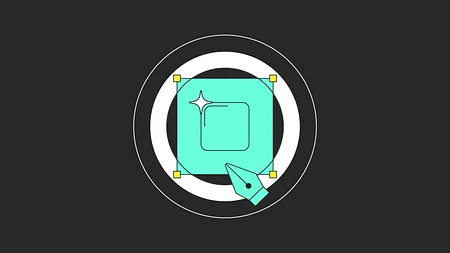Can knowledge sharing jumpstart your culture?

Culture doesn’t begin and end with sports teams and Slack channels – knowledge sharing offers plenty of lessons for scaling companies.
We all know the importance of culture. Some firms seem, from the outside, to have culture absolutely sorted and we’ve all seen the stories of those who clearly don’t.
In my time with 11:FS, I’ve seen firsthand how a strong company culture can keep everyone growing together and engaged with one another other over department lines and across project boundaries . Look no further than the Fintech League, our yoga club, or even halrayd (“have a little rave at your desk”), the music channel we have on Slack.
But culture isn’t just (literal) fun and games.
As a company grows, it also needs to consider how it can get new employees of all backgrounds and experience levels up to speed, all without burning through significant resources.
At 11:FS, we’ve done that through knowledge sharing. Information flows into a pool from which every member of the company can freely draw. In theory, it’s about making information and industry best practices accessible across an organisation.
So what is knowledge sharing?
In practice, knowledge sharing initiatives can take many forms. At 11:FS, we have Rock the Floor, a series of lunchtime or breakfast lectures where experts from across the company share their knowledge on specific topics.
In the 11 months since we started the programme, it’s gone from an ad hoc speaking session to a cornerstone of our knowledge sharing initiatives. We’ve hosted speakers who’ve talked about everything from the landscape of banking in Latin America to a crash course in social media.
When it comes to knowledge sharing initiatives, getting the ball rolling is the most important thing
And if our rising pizza budget is any indication, the sessions keep getting more and more popular.
It’s ironic that we set up Rock the Floor to teach others, because we’ve learned so much: about our own industry, about running a company, and about sharing knowledge successfully across an organisation.
So with that in mind, we thought we’d share a few of the insights we’ve picked up along the way. Whether your knowledge sharing initiatives are already in full swing or just starting out, these tips should help you.
Start immediately
When it comes to knowledge sharing initiatives, getting the ball rolling is the most important thing. The idea for Rock the Floor stemmed from an old boss of mine. If she wanted to get us all on the same page, she’d book a room, get lunch in and have someone stand up and give a presentation on the issue at hand.
I learned so much from those talks, which offered insight and unpacked the relatively complex technology I worked with every day. And it all started with a simple idea that someone just executed.
Knowledge sharing has been valuable for 11:FS, and buy-in from managers and executives has been crucial to that
That was our initial model for Rock the Floor, and we added to it over time. The talks began to follow a cleaner narrative, and we sought to create a sense of coherence between each session.
But it didn’t happen right away. We needed to gain some momentum before we could map out the direction of travel and reach the programme we have today.
Seek help from the top down
Knowledge sharing has been valuable for 11:FS, and buy-in from managers and executives has been crucial to that.
They were fully onboard from the get go, encouraging us to start the sessions from scratch. Once we’d planted the seeds of Rock the Floor, we all sat down and determined how it would sprout into a more structured training programme. When we wanted to start recording and sharing the lectures, they connected us with the right resources.
Rock the Floor has succeeded in large part because we got it off the ground and then gained input from the right people at the right time. Do that and you’re already 90% of the way there.
Cater (literally) to your attendees
There’s a reason pizza is so important to Rock the Floor, and it’s not only because it’s delicious. Our sessions always happen at lunchtime, and that’s a big part of why so many people show up.
It’s not for the free meal – it’s because lunch is the one time of day where most people are available to sit down and learn something new. Knowledge sharing is for your audience’s benefit, so every decision, from topics to timing, should be made with that in mind.
Ultimately, it’s easier to get people up to speed if you do it on their terms
Solicit feedback from attendees and take action based on it. For example, when people in our New York office told us they were tuning in at 7:30 in the morning to watch our lunchtime talks, we immediately started trying to make things more accessible for them.
Ultimately, it’s easier to get people up to speed if you do it on their terms.
Get experts to see the value in speaking
For me, we passed a major milestone when, instead of just responding to our outreach efforts, speakers started asking us if they could do Rock the Floor sessions. It meant the programme’s value was clear to audiences and experts alike.
And we didn’t need to move mountains to get to this point. Sure, we help out where we can: putting together slide decks, setting up soundboards, taking care of bookings. Doing these organisational chores frees up our speakers to do their best when they’re onstage.
But there are other ways to add value. At the end of each session, we send out surveys that ask for quantitative and qualitative feedback. Speakers can then use that information to hone their skills and adapt their presentations for other audiences.
At the end of the day, knowledge sharing has had a profound effect on 11:FS’s culture. Each talk has taught its audience something, either about the industry or someone they work with. Either way, the positive impacts can’t be understated.
CTA: Looking for other examples of a thriving company culture? Read David Brear’s blog on how 11:FS unleashes talent.



